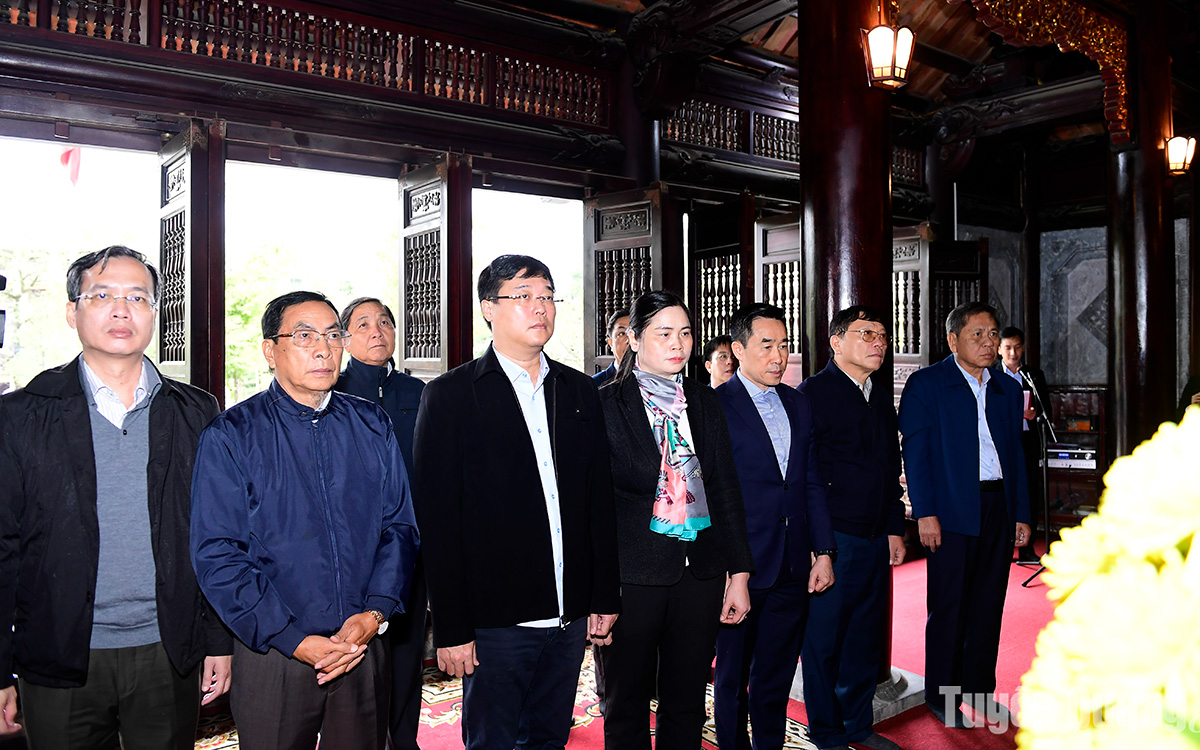On February 16, a delegation from the Dong Thap Provincial National Assembly (NA), led by Le Quoc Phong, Member of the Party Central Committee and Secretary of the Provincial Party Committee, visited the Tan Trao Special National Relic Site.

Delegates offer incense at the Temple of President Ho Chi Minh (Tuyen Quang City). (Photo: baotuyenquang.com.vn)
The delegation paid tribute at Lan Na Lua, where President Ho Chi Minh lived and worked from late May to August 1945 to lead preparations for the General Uprising to seize power.
The delegation also offered incense at Tan Trao Communal House, where, on August 16-17, 1945, the National Congress convened to approve the decision to launch the General Uprising across the country, define the national flag and anthem, and elect the National Liberation Committee, which became the Provisional Government led by President Ho Chi Minh. The Tan Trao National Congress was a decisive event in the nation's destiny and a crucial step toward the first general election of the Democratic Republic of Vietnam on January 6, 1946.
At the Memorial Area for Revolutionary Predecessors, the delegation paid tribute to and honored the revolutionary pioneers, who were exemplary disciples of President Ho Chi Minh, steadfast communist soldiers who dedicated their lives to national independence, reunification, and the freedom and happiness of the people.
The delegation also visited and offered incense at the memorial site of President Ton Duc Thang at the Standing Committee of the National Assembly Relic Site in Dong Ma Hamlet, Trung Yen Commune—where the Standing Committee of the National Assembly of the Democratic Republic of Vietnam was based from 1952 to 1954.
At each historic site, the delegation members expressed deep gratitude toward the local people, who provided shelter and support during the arduous years of resistance, when President Ho Chi Minh and Party and State leaders lived and worked there to guide the revolution. The delegation affirmed that these historic sites are not only a source of pride for the people of Tuyen Quang but also sacred landmarks of national significance.
On the same day, the delegation also offered incense at the Temple of President Ho Chi Minh in Tuyen Quang City./.
Compiled by BTA